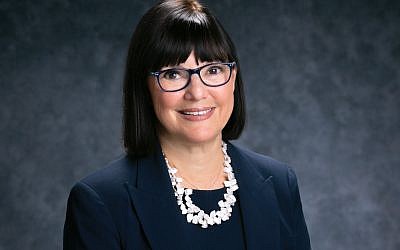No Small Talk or Small Needs in Jewish Atlanta
The COVID-19 emergency fund created by the Jewish Federation of Greater Atlanta is off to a good start, but much more may be needed.
Dave Schechter is a veteran journalist whose career includes writing and producing reports from Israel and elsewhere in the Middle East.
Talking tachlis means getting down to brass tacks, to what’s really important.
Consider three examples from an April 1 call organized by the Jewish Federation of Greater Atlanta to discuss the impact of COVID-19 on the community.

Eric Robbins, president and CEO of the Jewish Federation of Greater Atlanta: “We have top notch organizations that we have spent a long time building and strengthening. They’re all threatened long term right now.”
Terri Bonoff, chief executive officer of Jewish Family & Career Services: “This morning, as I looked at my staff’s faces, I saw something that I hadn’t seen just a few days ago, a palpable fear in their faces and sadness and despair.”
Rabbi Laurence Rosenthal of Ahavath Achim Synagogue and president of the Atlanta Rabbinical Association: “Many off our colleagues are bracing for what might be the inevitable flood of funerals we’re going to have to deal with. I think that scares a lot of our colleagues. I definitely know it scares me.”

As of April 1, the Federation’s COVID-19 emergency fund had received – in just four days – $2.2 million from some 180 donors, in amounts ranging from $18 to $250,000, Federation Board Chairman Mark Silberman said on the call.
Federation officials believe that much more, perhaps into eight digits, will be needed to meet the short- and long-term needs of individuals and organizations. The first allocations were expected by the week’s end. The Federation plans to publish the amounts and recipients, stressing that 100 percent of the funds will go to meet the already rising tide of need.
“I am optimistic that we will weather this storm. We will get through this, but this will not be easy; this will be one of the biggest challenges we have seen in this community in a very long time,” Robbins said.
Reports of storm damage came throughout the call.
Emergency financial assistance and the food pantry are JF&CS’s front line services. “Our demand is doubling week after week,” Bonoff said. JF&CS needs an infusion of $750,000 to meet the demand through its fiscal year ending June 30 and can foresee needing $5 million in the coming year.

Bonoff praised the agency’s workforce. “The staff of JF&CS really aren’t the same people that they were three weeks ago. They are heroes. They are heroes working around the clock . . . bringing a tremendous amount of talent and courage to dealing with the broader Jewish community,” she said.
Harley Tabak, president and CEO of Jewish HomeLife, spoke similarly about JHL’s employees. “We have amazing caregivers who walk in our buildings every day knowing that they are potentially going to be exposed to the virus and risk their own health,” he said. That was no idle statement, as six residents and six employees in JHL facilities have tested positive for COVID-19.
Tabak said that locating enough personal protective equipment for JHL employees is “a real nightmare for every health care provider in the country” and a 24-hour-a-day challenge. “We’re dealing with costs we haven’t had to incur,” he said, including extra overtime and sick leave, and based on what he’s being told, “We’re bracing for more tough times, especially in the coming month.”
As chief executive officer of the Marcus Jewish Community Center of Atlanta, Jared Powers knows how tough times can be. “We had to make a large amount of layoffs and furloughs on Monday, March 30 just to make sure that we can be a financially stable and viable organization moving forward,” Powers said. He addedthat a short-term goal is to take care of the employees let go, including paying for their health insurance.

Speaking for the Jewish day schools, David Abusch-Magder, head of school at The Epstein School, said that the public health crisis came during the “recruiting season” for potential students and families. “We are gearing up for knowing that some families will be unable to meet their current commitments for tuition . . . and that some may be in a position where they are afraid of being unable to meet their commitments for the future,” he said.
Helping people meet financial obligations is the mission of the Jewish Interest Free Loan of Atlanta. “We’re incredibly well suited to help the community at this particular time,” said Laura Kahn Travis, president of JIFLA’s board of directors. “We have an organization here which is pretty much designed to fill the need which the community now has.”

JIFLA has raised $20,000 for a COVID-19 response fund, but likely will need $150,000 more, “to make loans to people who have loss of income and that’s our main focus right now,” she said. The COVID fund will make guaranteed loans of up to $7,500, while a separate “angel fund” will make loans of $1,000 to $1,500 to meet such immediate needs as paying for food, rent, childcare and medical expenses.
“Many of our organizations do not have significant reserves to weather a significant disruption of this nature,” Silberman said. He ticked off such figures as Jewish HomeLife needing an infusion of $270,000 over the next 60 days for supplies and staff, as well as $100,000 needed elsewhere to purchase and deliver food to the homebound, and $500,000 for emergency grants and loans for the unemployed and underemployed over the next 90 days.




comments